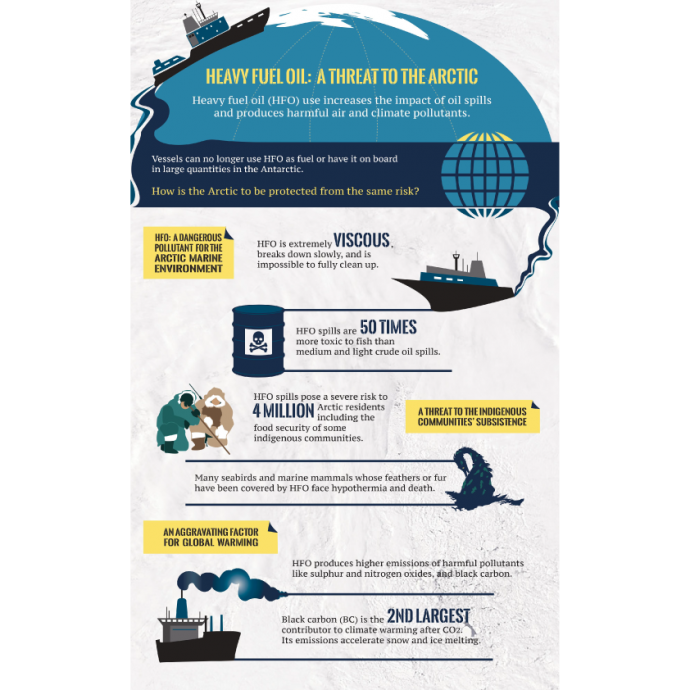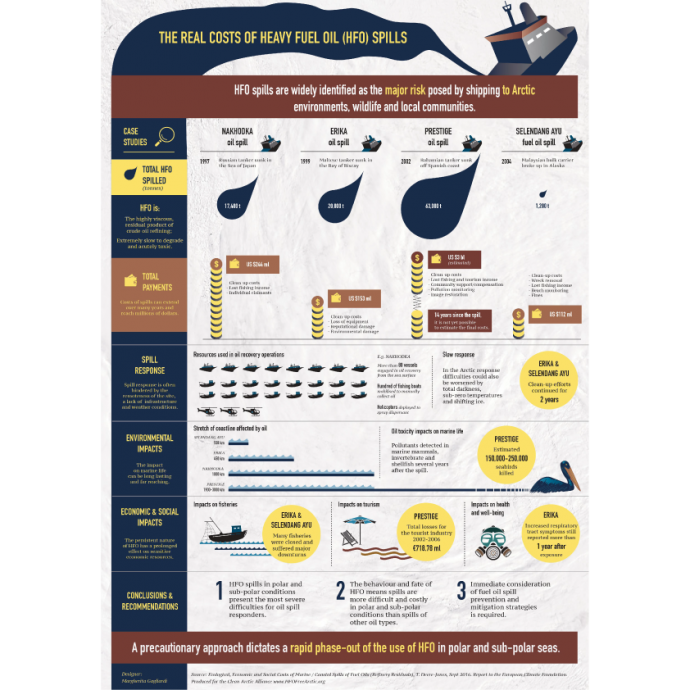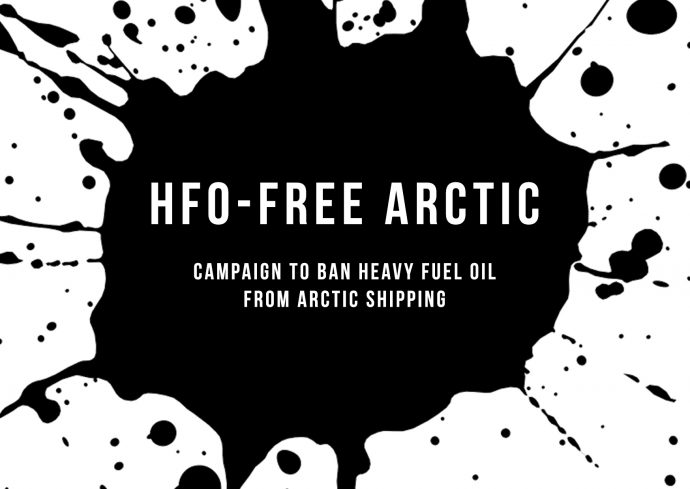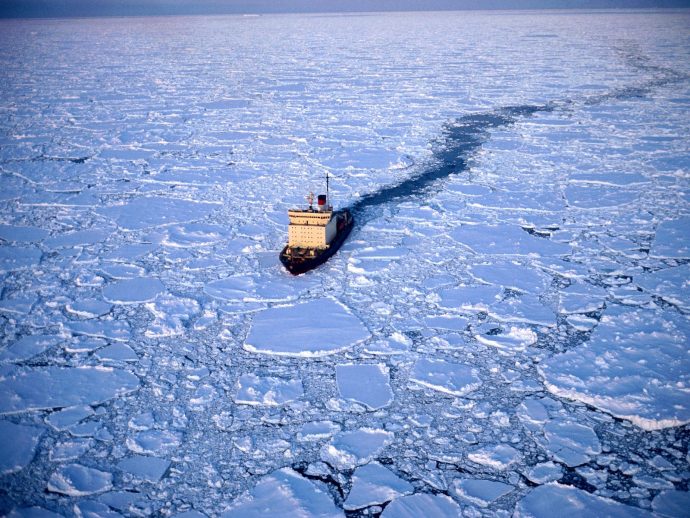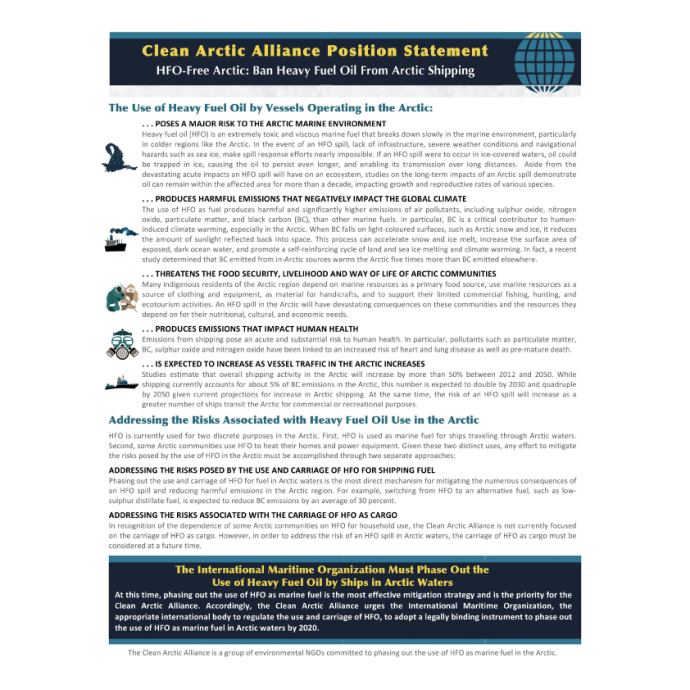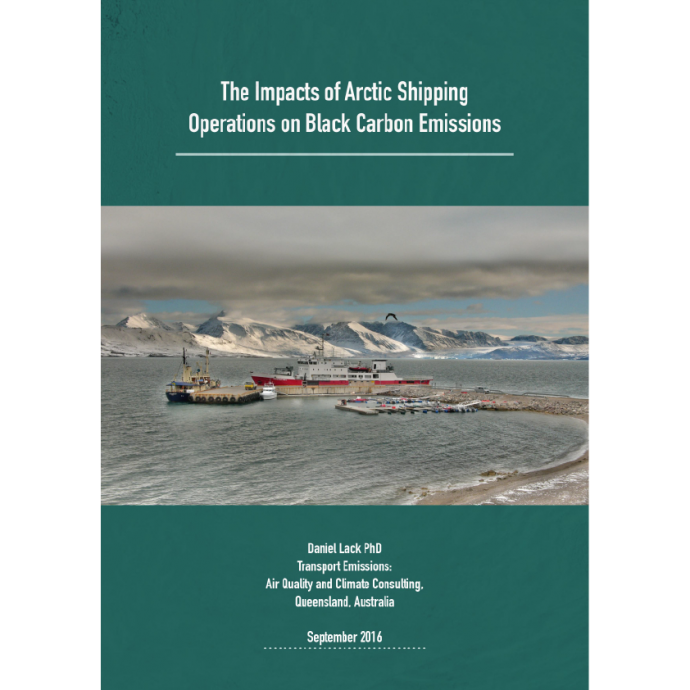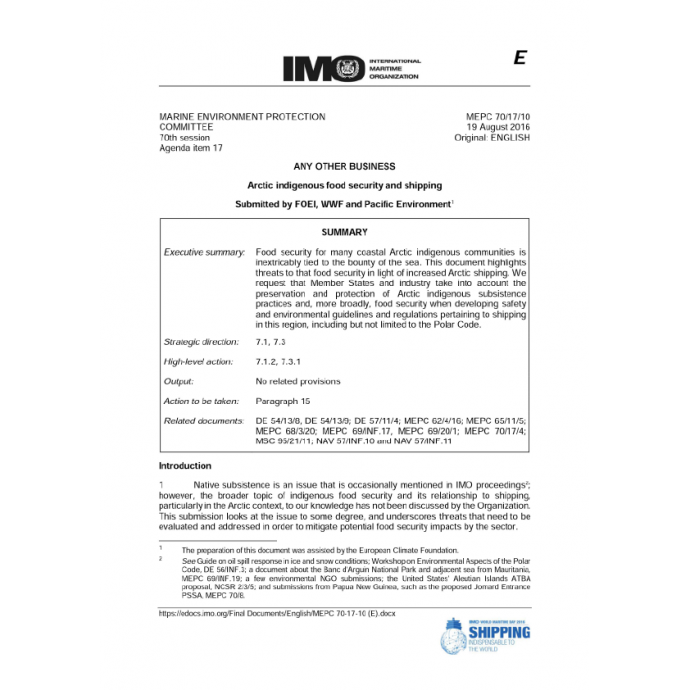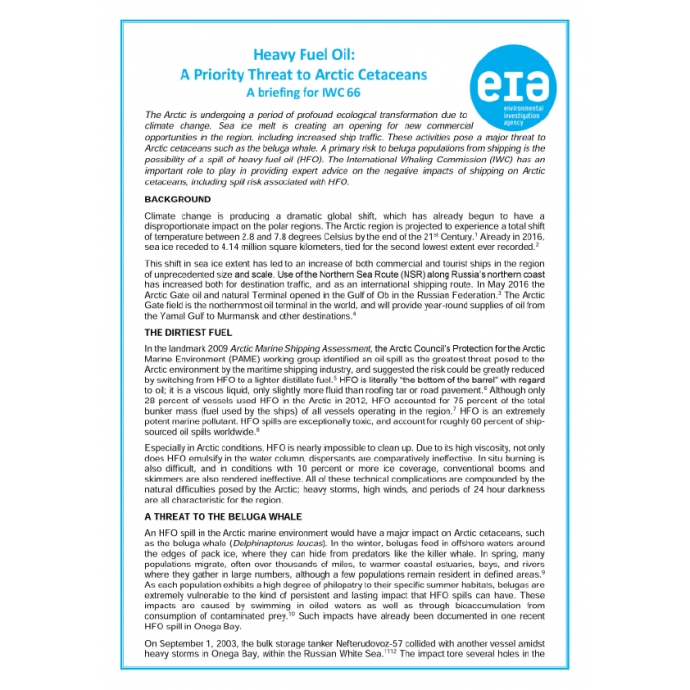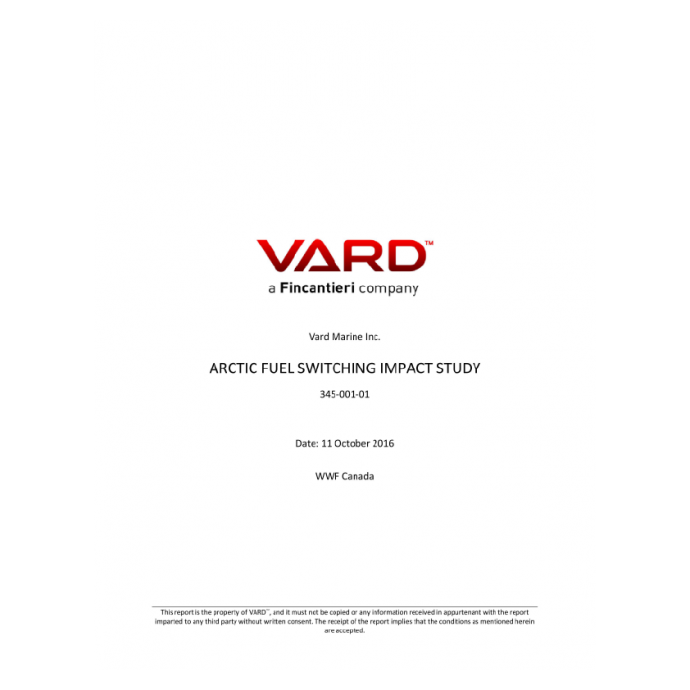Infographic on Heavy Fuel Oil: A Threat to the Arctic
An infographic by the Clean Arctic Alliance
Compelling facts and figures demonstrating the many risks associated with the use of heavy fuel oil (HFO). The document makes the case for the rapid phasing out of HFO use from Arctic shipping and offers some solutions on measures to protect the Arctic environment.

